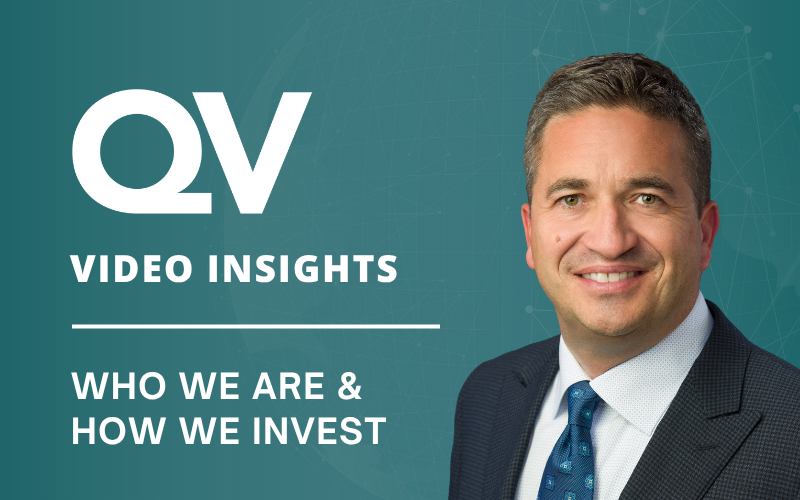The invasion of Ukraine by Russia has produced a high level of uncertainty globally. This is acutely felt throughout the rest of Europe given geographic proximity and dependency on the conflict regions for imports such as energy. Heightened uncertainty often translates into major volatility in equity markets as investors attempt to digest a widening range of outcomes. As of yesterday, the STOXX Europe 600 Index, a broad measure of European equities, is down over 12% year-to-date, while the S&P 500 is down 10.6% and the S&P/TSX Composite is up 1.7% in comparison. We continue to assess evolving risks among QV holdings, as well as potential emerging opportunities.
ASSESSING THE REAL RISKS
As we have communicated in the past, we believe risk in an investment thesis relates to the probability of permanent capital loss. QV has no direct investments in any Russian, Belarusian or Ukrainian listed securities. We do own businesses that have operations in those regions. Much of this exposure comes from multinational organizations such as Nestle and Unilever that have scaled back capital investments and are complying with sanctions against Russia and Belarus. Our largest single exposure is in the QV Global Small Cap Fund, where we own Olvi Oyj, a Finnish-listed manufacturer and wholesaler of alcoholic and non-alcoholic beverages. Olvi owns some of the largest and most recognizable beverage brands in Finland, Estonia, Latvia, Lithuania, as well as Belarus. As owners of the oldest brewery in the region, Olvi derived 24% of its profit from Belarus last year. For example, it produces Lidskoe Pivoe, a 145-year-old globally award-winning beer with dominant regional market share. Despite the rich history, the value of this brand may be permanently impaired. When Belarus entered the conflict in support of Russia, Olvi began to face a real risk to cash flows, and not simply as a risk of proximity. Within a matter of days, Olvi made the difficult decision to begin withdrawing from operations in the region. We believe the relatively small 1.3% weight of the business within the diversified QV Global Small Cap Fund largely contains this rapidly evolving risk. Furthermore, one of the key tests that we prioritize is balance sheet strength. Olvi has no debt on its balance sheet, so as the worst-case scenario unfolded and the company ceased to operate a large portion of its cash flow base, it was able to avoid further pressures and uncertainty that otherwise could have emerged in the case of solvency concerns. Although the impact of moving out of Belarus will be significant for Olvi in the near term, it still has over 50 different well-recognized brands that have opportunities for long-term growth in pro-democracy regions. The QV Global Small Cap Fund owns 20 European-listed businesses (representing 49% of the portfolio), 12 of which have net cash on their balance sheets. This provides an important form of margin of safety in an unpredictable environment.
Very real and immediate corporate decisions have not been isolated to holdings in our global strategies. For example, Alimentation Couche-Tard in the QV Canadian Large Cap Strategy has announced a suspension of operations in Russia. However, this again remains a contained development at the total portfolio level, as the company only operates 38 stores in the region (compared to 15,000 stores globally).
STAGFLATION RISK?
Rather than direct regional exposure, our biggest risks may be macroeconomic in nature. Inflation expectations have climbed materially in Europe since the invasion began. Consider the German 2-year inflation expectation as a proxy, which has moved up one percentage point to over 4% in only a few weeks. Higher energy prices and further stress on supply chains that had yet to fully recover from the pandemic continue to exacerbate the inflation outlook. Higher commodity prices are also leading to fears that an economic slowdown may be triggered on the continent. According to analysis from Bernstein, the cost of energy and commodities as a percentage of global GDP is now over 14% and has never been higher over the past 50 years.
Bernstein analysis also shows that in historical periods of stagflation (rising inflation coupled with slowing economic growth) in Europe, sectors such as health care and consumer staples have performed relatively well. One-third of the European holdings in QV’s Global Equity Strategy are in these two sectors. Above all else, this analysis highlights the importance of portfolio diversification and our consistent commitment to risk management. While we have not intentionally positioned our strategies for the possibility of stagflation in Europe, we have intentionally constructed strategies with adequate levels of diversification in terms of both economic and geographic exposures. We have also constructed our strategies to provide valuation, balance sheet and income advantages relative to the market. These benefits become especially evident in periods of extreme uncertainty.




